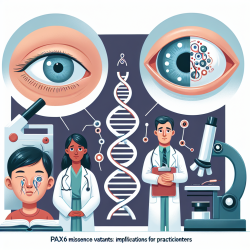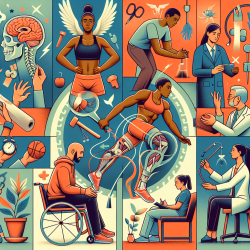In recent years, artificial intelligence (AI) has revolutionized many fields, including healthcare. Neonatal Intensive Care Units (NICUs) are starting to see the benefits of AI, especially in improving the diagnosis and management of neonatal conditions. This blog explores how practitioners can implement the outcomes of a systematic review on AI in NICUs to enhance their skills and encourages further research.
Understanding AI in Neonatal Care
AI encompasses machine learning (ML) and deep learning (DL), which involve teaching computers to learn from data. In neonatology, AI applications include survival analysis, neuroimaging, analysis of vital parameters, and diagnosis of conditions like retinopathy of prematurity. The systematic review titled "The past, current, and future of neonatal intensive care units with artificial intelligence: a systematic review" categorizes and evaluates these applications, offering valuable insights for practitioners.
Implementing AI Outcomes
Practitioners can enhance their skills by integrating AI-based tools into their practice. Here are some actionable steps:
- Stay Informed: Keep up with the latest research on AI applications in neonatology. Reading systematic reviews and attending relevant conferences can provide valuable updates.
- Collaborate: Work with data scientists to understand how AI can be integrated into your clinical workflow. Collaboration can help in the development and validation of AI models tailored to your needs.
- Training: Participate in training programs focused on AI in healthcare. Understanding the basics of ML and DL can make it easier to adopt these technologies.
- Start Small: Begin by implementing AI tools for specific tasks, such as neuroimaging or vital sign analysis. Gradually expand the use of AI as you become more comfortable with the technology.
- Evaluate and Adapt: Regularly evaluate the performance of AI tools in your practice. Be open to making adjustments based on feedback and new research findings.
Encouraging Further Research
While implementing AI in neonatal care can significantly improve outcomes, ongoing research is crucial. Practitioners are encouraged to:
- Participate in Research: Get involved in clinical trials and research studies focused on AI in neonatology. Your clinical expertise can provide valuable insights.
- Share Data: Contribute to data-sharing initiatives to help build comprehensive datasets for training AI models. The quality and quantity of data are critical for the success of AI applications.
- Advocate for Ethical AI: Ensure that AI tools are developed and used ethically, with a focus on patient privacy and data security. Advocate for transparency and explainability in AI models.
By taking these steps, practitioners can not only improve their skills but also contribute to the advancement of AI in neonatal care. For those interested in diving deeper into the research, the original paper provides a comprehensive overview of the current state and future directions of AI in NICUs.
To read the original research paper, please follow this link: The past, current, and future of neonatal intensive care units with artificial intelligence: a systematic review.










